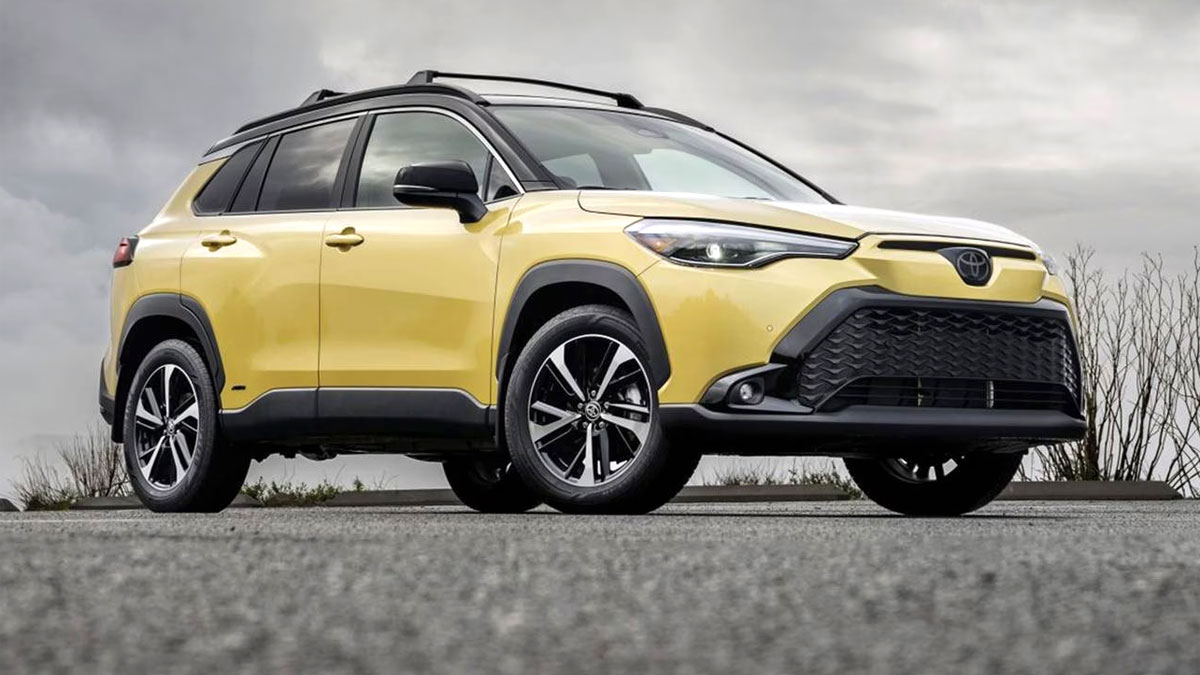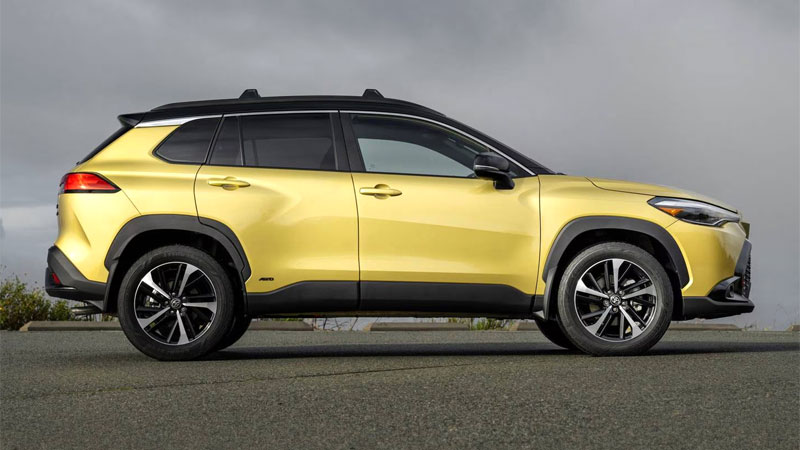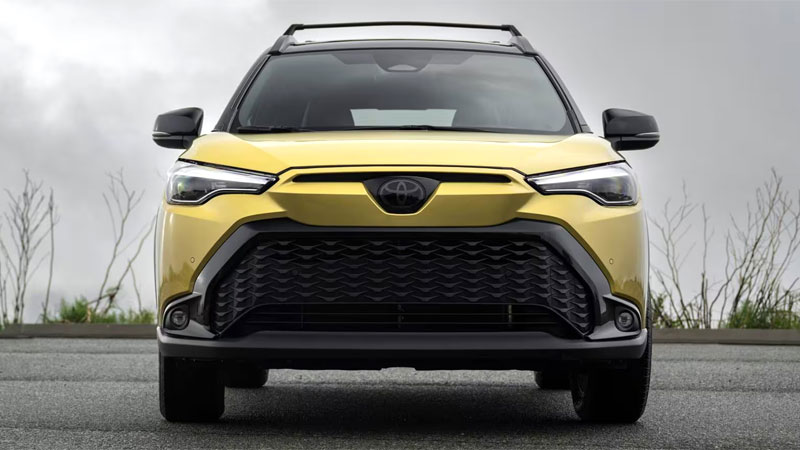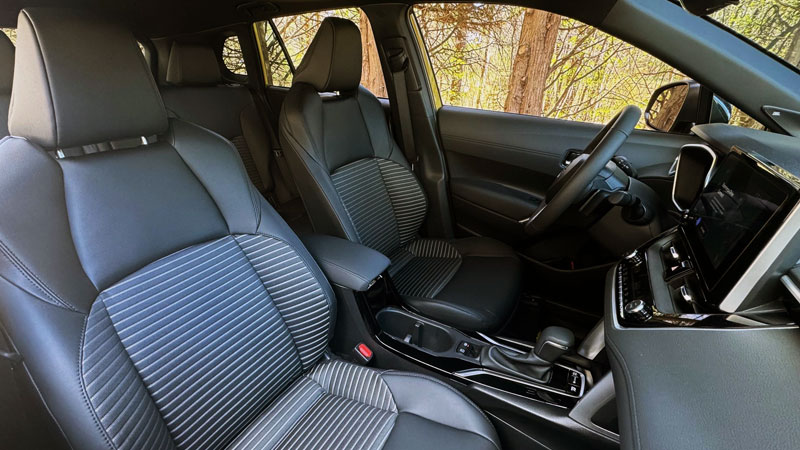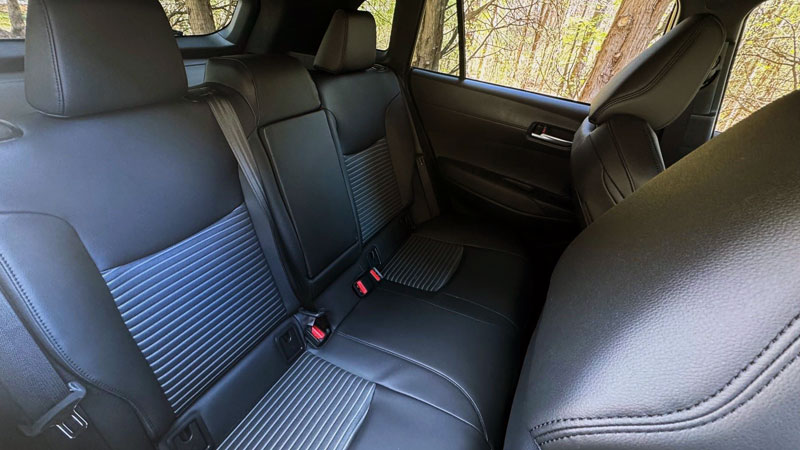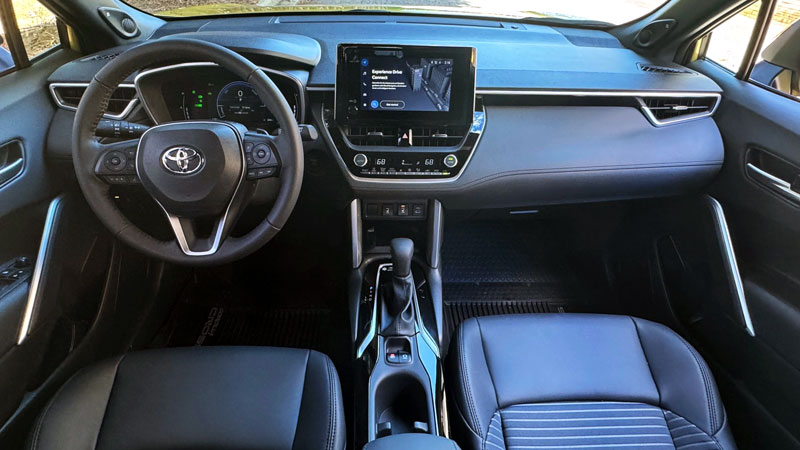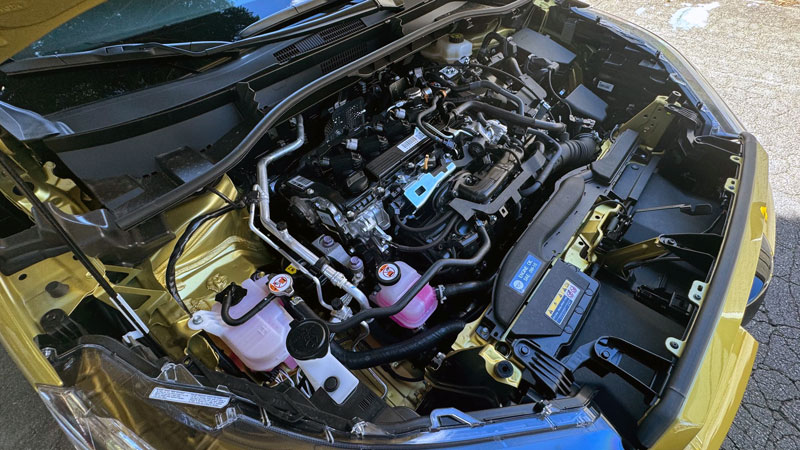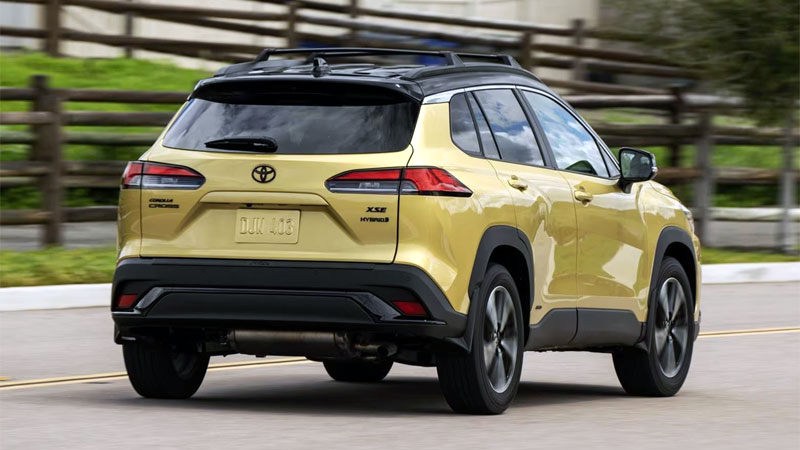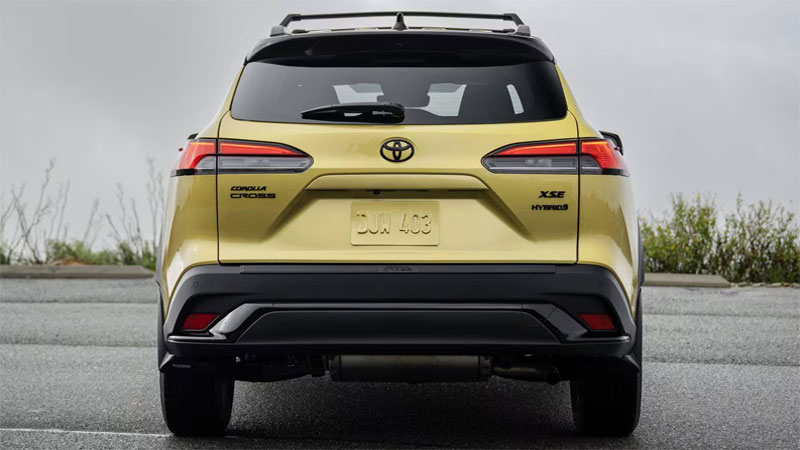Small crossovers dominate the new vehicle market, with every manufacturer well represented. The Toyota Corolla Cross, harnessing the brand’s most popular product’s name, is one of the newer models available.
This one seats up to five, comes with available all-wheel drive, and is sold in gas and hybrid versions. It also offers respectable value in a market where prices continue to outpace inflation.
2024 Toyota Corolla Cross
Introduced in 2022, the Toyota Corolla Cross received tech upgrades in 2023. For 2024, this subcompact crossover returns unchanged.
The 2024 Corolla Cross offers several trims, including gas-powered L, LE, and XLE models with front-wheel drive starting at $23,610, $25,940, and $27,835, respectively, and all-wheel drive options for an additional $1,400.
Hybrid models, all with all-wheel drive, include the Hybrid S ($27,970), Hybrid SE ($29,290), Hybrid Nightshade ($30,215), and the Hybrid XSE ($31,155). Add a $1,350 delivery charge to all prices.
See Also – 2023 Toyota GR Corolla Review
Exterior Highlights
Toyota models feature a gaping maw. Some do it worse, others do it better. We place the Corolla Cross in the latter category.
On hybrid versions, the mouth is smaller and sits lower, and is complemented by a narrow upper grille. There are a few other distinctions between gas and hybrid models, mostly with badging and wheel options.
Overall, the look is sporty, even elegant on upper trims. The appearance is more sophisticated than many of the toy-like SUVs that introduced this segment three decades ago, a welcome evolution.
Toyota offers expanded LED lighting on the upper trims, along with roof rails, privacy glass, and satin-finish door handles. If you want a power-controlled liftgate, this option is reserved for a Convenience Package upgrade offered on all but the base trims.
Interior Highlights
If the interior of the Corolla Cross seems familiar, it is. The cabin is nearly identical to the Corolla sedan, underscoring the similarities across the family line.
This means that the front seats are comfortable for two, while placing three in the back is a challenge. Even with two adults present, legroom is very tight. We think this model is ideal for two or with two children in the rear.
The star, though, is cargo space as this vehicle offers 25 cubic feet of standard cargo space or upwards of 60 cubic feet with the rear seat folded. Suddenly, those Sam’s Club runs don’t seem so challenging.
Fabric-trimmed seats come standard, with imitation leather reserved for the top trims. A power-controlled driver’s chair and heated front seats are also spend-up features. The driver’s seat offers average comfort, but for larger individuals that padding may not suffice.
There are ample storage spaces in the cabin, including the doors and the center consoles. Most trims offer four cupholders, with two more added at the top.
The all-important (at least to us) tonneau cover is not available with the base trims, is optional with the middle grades, and included with the top models.
Technology and Safety
A six-speaker audio system is standard, while a 9-speaker JBL package is available across the model line. The JBL delivers ample sound immersion as two speakers are embedded in the front roof pillars.
The Corolla Cross comes with two standard USB ports, with four available. We’ve seen significant improvements with Toyota in-cabin technologies over the past two years.
Last year, the automaker introduced to this crossover a better functioning touchscreen interface. It still isn’t as seamless as what some competitors offer, but we’ll take the improvements, nonetheless. Toyota also offers wireless Apple CarPlay and Android Auto functionality.
Toyota is staying ahead in the safety game with its standard Toyota Safety Sense 3.0 package. This comprehensive suite includes the Pre-Collision System with Pedestrian Detection, Proactive Driving Assist, Full-Speed Range Dynamic Radar Cruise Control, Lane Departure Alert with Steering Assist, Automatic High Beams, Lane Tracing Assist, and Road Sign Assist.
Toyota’s safety package is essentially your co-pilot on the road, offering unmatched safety and ease, ensuring a stress-free driving experience.
Aside from the comprehensive bundle, Toyota offers additional safety features worth noting. The adaptive front lighting system, available on higher trims, enhances nighttime visibility. Certain models also incorporate dynamic gridlines in the rear-view camera, making it easier to navigate tight parking spaces.
Furthermore, there’s an option for front and rear parking assist with automatic braking. However, a head-up display is not offered, a forgivable absence as this feature usually comes with more expensive models.
Performance
Underneath the hood of both the gas and hybrid variants lies a 2.0-liter four-cylinder engine. With the gas version, this one makes 169 horsepower and 150 pound-feet of torque. It comes with standard front- or available all-wheel drive.
Power routes to the wheels by means of a continuously variable transmission. This model rates as high as 31 mpg city/33 mpg highway/32 mpg combined.
As for the hybrid, this one is more efficiently tuned for fuel economy, therefore it produces 150 horsepower and 139 pound-feet of torque. However, under full throttle – when pressing the pedal to the floor – this version delivers 196 horsepower.
An electronic CVT routes power to all four wheels. This version is EPA rated at 45/38/42; we averaged approximately 38 mpg with near-exclusive highway driving.
Every Corolla Cross is rated to pull up to 1,500 pounds. On the other hand, the Corolla hatchback and sedan do not have tow ratings.
Driving Highlights
Our test model was the hybrid and it delivered the power output we expected for a vehicle in this class. There isn’t much of a reminder with the Corolla car versions when driving the crossover, although the two share a common platform.
We found the Corolla Cross delivers adequate step-off acceleration. We expect that the gas model supplies decent passing power, while the hybrid excels in that department.
But a lead foot defeats the purpose of the hybrid, so we recommend limiting that activity. Still, when an extra power boost is needed, the Corolla Cross delivers.
The Corolla Cross earns decent marks for its driving dynamics, showcasing impressive handling, especially in tight situations. Its ride comfort surpasses that of sedan variants, thanks to superior bump absorption.
However, our enthusiasm wanes when it comes to CVTs. Despite their prevalence in hybrids and small-engine vehicles, we favor traditional transmissions for superior power output, even though they may reduce fuel efficiency. It’s all about tradeoffs.
Toyota Corolla Cross Considerations
With the Corolla a global name, Toyota building a crossover variant ensures the model line’s longevity, particularly in a crossover-crazy nation such as the US.
Size wise, the Corolla Cross slots beautifully beneath the now larger and extremely popular RAV4. It also serves as a fitting replacement for the quirky C-HR, a model that never caught on as Toyota had hoped.
The segment, though, is filled with worthy competitors, including the Mazda CX-30, Honda HR-V, Hyundai Kona, and the Volkswagen Taos, to name a few. But if you want a hybrid, then stay with the Toyota.
As for the Corolla Cross, we think the LE model serves as an ideal purchase point for the gas version.
Choose the hybrid, and the SE’s near $30,000 price point offers decent value. But if rear-seat room is an important consideration, then start your search with the RAV4, although that shift immediately adds $5,000 to your cost.
Interior and engine photos copyright Auto Trends Magazine. Other photos courtesy of Toyota.
- 2024 Mazda CX-50: A Compact SUV with Premium Aspirations - Apr 15, 2024
- 2024 Ford Mustang (Iconic Pony Car Evolves) - Apr 4, 2024
- 2024 Ford Maverick (Looks Like a Truck, Drives Like a Car) - Mar 28, 2024

